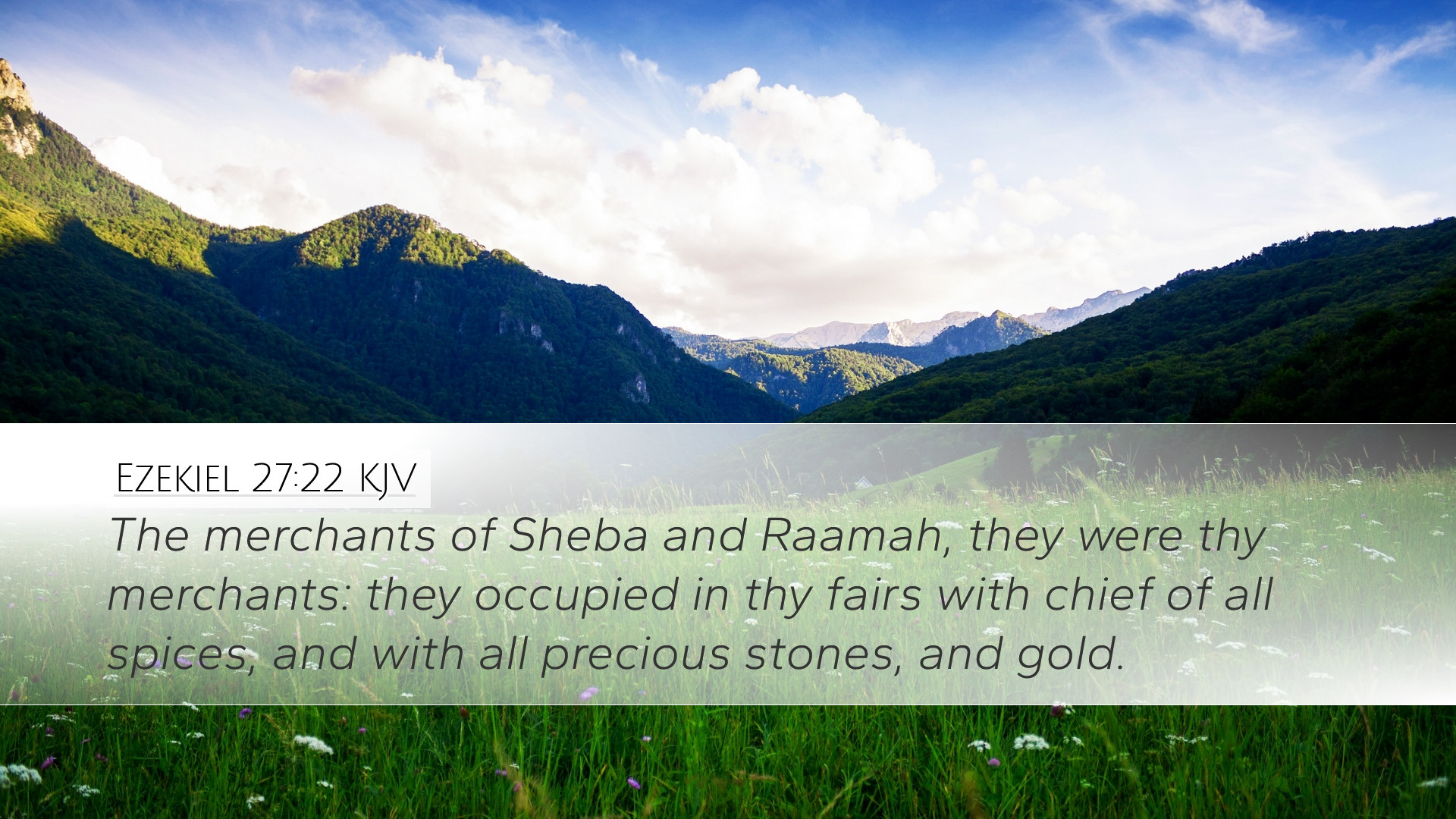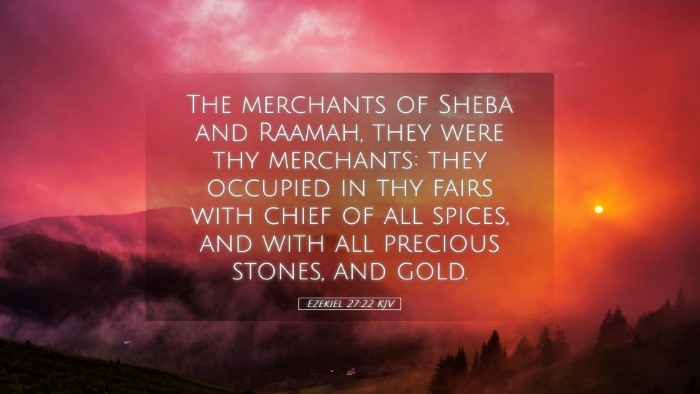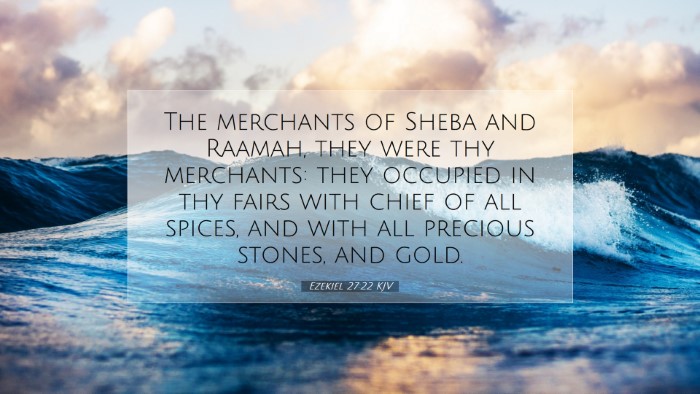Commentary on Ezekiel 27:22
Biblical Context: Ezekiel 27 is an intricate metaphorical depiction of the city of Tyre as a thriving maritime power. This chapter is a lament for Tyre’s fate and serves a dual purpose: to mourn the city’s glory and to warn against pride and arrogance. It highlights the implications of divine judgment against nations that turn away from God.
Verse Text
Ezekiel 27:22 - "The merchants of Sheba and Raamah, they were your merchants: they traded the most precious spices, and every sort of precious stone, and gold." (KJV)
Verse Explanation
The verse highlights specific traders associated with Tyre, emphasizing the wealth generated through its expansive trade networks. These merchants from Sheba and Raamah represent the further reaches of trade, indicating Tyre's extensive economic influence. The description of "most precious spices" alongside "precious stones" and "gold" illustrates the high value of the commodities that fortified Tyre’s wealth.
Insights from Public Domain Commentaries
Matthew Henry:
Matthew Henry notes that the merchants of Sheba and Raamah symbolize the rich diversity of trade engulfing Tyre. His commentary elaborates that these merchants brought not only wealth but also a sign of devotion to the gods of commerce. Tyre’s prosperity was built upon connections with distant lands, each contributing to the city’s grand market. Henry warns that this comes with a price—spiritual decadence, as Tyre became enmeshed in the worship of material wealth and status rather than true devotion to God.
Albert Barnes:
Barnes emphasizes the significance of Sheba and Raamah, viewing them as representing the entire Arabian Peninsula. The merchants depicted here were likely part of a vast network that included various nations and peoples, illustrating Tyre’s position as a central hub of commerce in the ancient world. Barnes draws attention to the nature of the goods traded—spices and precious stones—which are used symbolically to reflect the lavishness of life and the ultimate downfall that follows from placing value on material gain over spiritual integrity.
Adam Clarke:
Adam Clarke delves into the geographical implications of the merchants’ origins, emphasizing that their wealth and opulence could be fleeting. He draws parallels to contemporary society, warning that reliance on trade and wealth is precarious without reliance on divine principles. Clarke points to the eventual ruin of Tyre, illustrating that spiritual neglect results in the collapse of even the mightiest powers. Notably, he encourages readers to consider the lasting value of wisdom and righteousness over transitory material possessions.
Theological Implications
This verse, along with the surrounding verses in Ezekiel 27, serves to illustrate that God's judgment is not merely reserved for individuals but extends to nations. It showcases how the pursuit of wealth can lead to spiritual blindness and separation from God. The insights from these commentaries encourage church leaders and scholars to reflect on prioritizing spiritual commitments over material pursuits.
Applications for Today
- Evaluate Our Values: Like Tyre, modern societies often chase wealth at the expense of spiritual integrity. Pastors and theologians are called to lead congregations in assessing what constitutes true prosperity.
- The Dangers of Materialism: The authors suggest developing a robust theological framework that equips believers to understand the ephemeral nature of worldly possessions.
- Interdependence of Faith and Commerce: The connection between trade practices and spiritual health can be a vital area of discussion in Christian ethics.
- Forecasts of Consequences: Understanding Tyre's fate serves as a warning against collective spiritual apathy and a drift away from covenantal fidelity.
Conclusion
The merchants of Sheba and Raamah serve not only as historical references but also as enduring symbols of the complexities involved in wealth, trade, and societal health. This lament for Tyre implores modern believers to guard against the allures of prosperity and to maintain a vigilant focus on faithfulness to God. As scholars and practitioners engage with this text, they are encouraged to contemplate what it means to live in balance with divine priorities in an age overwhelmed by materialism.


